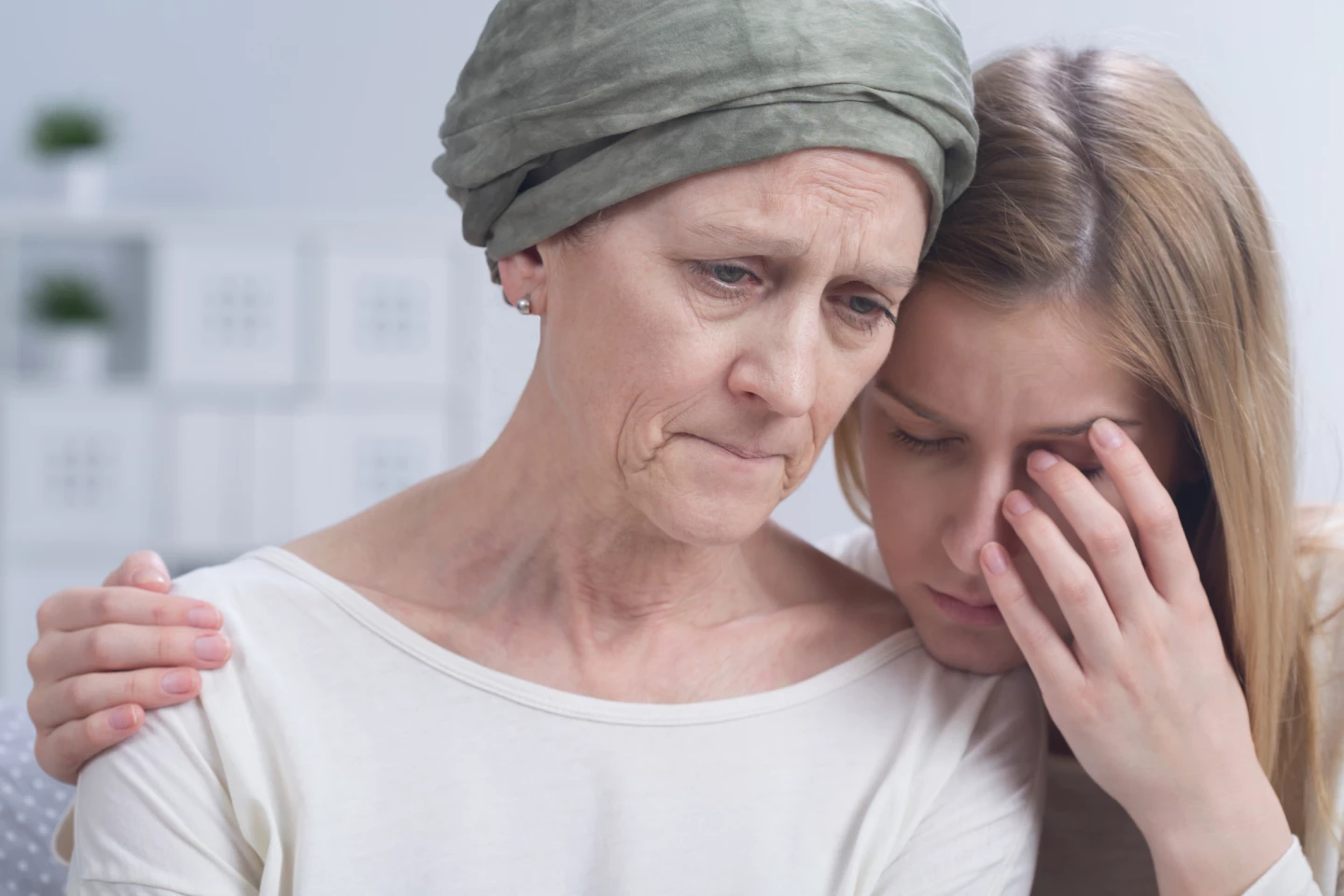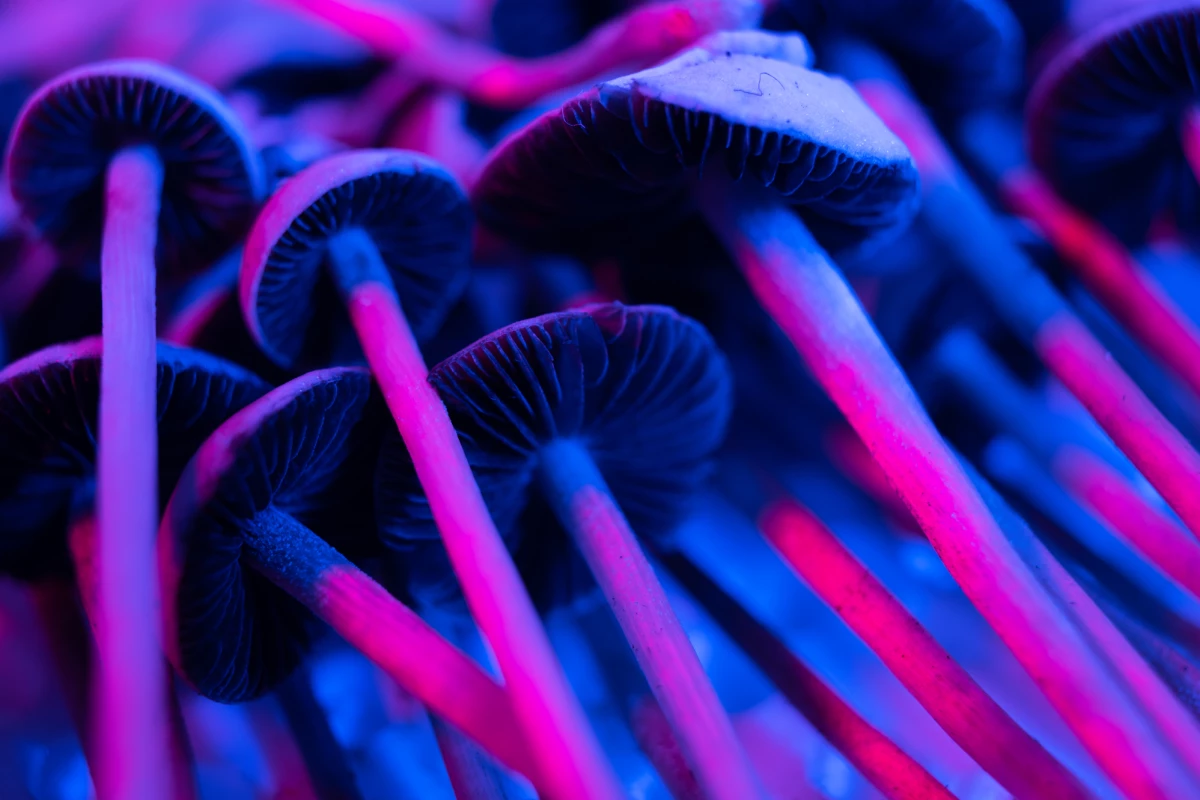Results from a recent clinical trial have demonstrated that psilocybin-assisted therapy is effective at treating moderate-to-severe depression in patients with curable and incurable cancer. In a first, the drug was given to small groups of patients simultaneously, before they underwent one-on-one and group therapy.
Cancer patients commonly experience depression, with around 25% to 33% meeting the criteria for clinically significant depressive symptoms. However, first-line treatments such as antidepressants and psychotherapy have shown limited success in alleviating these symptoms.
Recently, there’s been great interest in using psychedelics to treat psychiatric disorders, particularly in situations where other treatments have been ineffective. Psilocybin, the psychedelic compound found in magic mushrooms, is one such drug that’s produced promising results in clinical trials. Now, a phase 2 clinical trial using psilocybin-assisted therapy to treat major depression in cancer patients has added to growing evidence that the drug could be an effective treatment.
“As an oncologist for many years, I experienced the frustration of not being able to provide cancer care that treats the whole person, not just the tumor,” said Manish Agrawal, lead author of the study. “This was a small, open-label study, and more research needs to be done, but the potential is significant and could have implications for helping millions of patients with cancer who are also struggling with the severe psychological impact of the disease.”
Thirty patients with curable and noncurable cancer and major depressive disorder (MDD) were enrolled in the trial, conducted in a community cancer center rather than an academic setting. To qualify, participants had to have been diagnosed with malignant cancer, been diagnosed with MDD without psychotic features according to DSM-5 criteria, have a Hamilton Depression Rating Scale (HAM-D) score of 18 or more at baseline, and not be taking antidepressant or antipsychotic medications or medical cannabis. A HAM-D score above 17 indicates moderate to severe depression.
The mean age of participants was 56. Almost half (46.7%) had curable cancer; the other half (53.3%) had noncurable, metastatic cancer. The most common diagnosis was breast cancer (33.3%), followed by leukemia and/or lymphoma (26.7%). For 66.7% of participants, between one and four years had elapsed since their initial cancer diagnosis.
After screening to collect medical information and undertake a physical exam, participants met with their assigned therapist for two preparatory sessions designed to impart information about the psilocybin treatment. From the third visit, participants were administered 25 mg of synthesized psilocybin each week for eight weeks, with small groups in adjacent rooms administered the drug simultaneously.
“This study was differentiated by its group approach,” Agrawal said. “Cohorts of three-to-four patients were simultaneously treated with 25 mg of psilocybin in adjacent rooms open at the same time, in a 1:1 therapist-to-patient ratio. The cohorts had preparation for the therapy as well as integration sessions following the psilocybin session as a group.”
The researchers used a different tool to measure the effect of psilocybin on depression severity compared to the baseline HAM-D score. Depression severity was measured with the Montgomery-Asberg Depression Rating Scale (MADRS), consisting of 10 items scored from zero (normal) to six (severe), with higher total scores denoting greater depression severity. A clinically significant response was defined as a 50% or greater reduction in MADRS score relative to baseline. A sustained response was noted if a significant response was maintained up to weeks three and eight post-treatment. Symptom remission was represented by a MADRS score of less than 10.

Psilocybin-assisted therapy induced a clinically meaningful reduction in MADRS scores by 19.1 points from baseline to week eight, with 80% of participants demonstrating a sustained response and 50% showing full remission of depression symptoms at week one, which was sustained for eight weeks. There were no psilocybin-related adverse events, and treatment-related side effects – nausea and headache – were generally mild.
“This was a pioneering study which added to the growing body of evidence for the effectiveness of psilocybin-assisted therapy in tackling the mental distress experienced by patients with cancer and also, importantly, demonstrated the feasibility of a group and 1:1 patient-to-therapist ratio,” said Agrawal.
In a second study, researchers, including Agrawal, gathered information from 28 participants involved in the psilocybin trial, using exit interviews to gauge their treatment experience. Participants were generally positive, saying that group therapy increased their sense of safety and preparedness as they engaged in the treatment and fostered a sense of belonging and connection that deepened the experience. They also found value in the intimacy of individual therapy sessions, which complemented the ‘togetherness’ of the group work.
“As a hematologist and palliative care physician and researcher, it was profoundly moving and encouraging to witness the magnitude of participants’ improvement and the depth of their healing journey following their participation in the trial,” said Yvan Beaussant, lead and corresponding author of the accompanying study. “Participants overwhelmingly expressed positive sentiments about their experience of psilocybin-assisted therapy while emphasizing the importance of the supportive, structured setting in which it took place. Many described an ongoing transformative impact on their lives and well-being more than two months after having received psilocybin, feeling better equipped to cope with cancer and, for some, end of life.”
The study and accompanying qualitative analysis of patients’ experiences post-clinical trial were published in the journal Cancer.
Sources: Sunstone Therapies, Scimex






